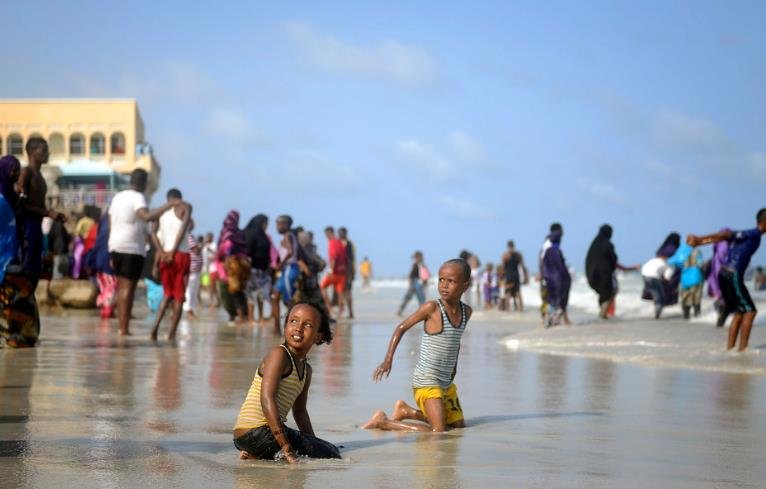In the heart of Mogadishu, a football pitch stands as a stark symbol of dual realities. By day, it echoes with the laughter of children playing; by dawn, it serves as the somber site of executions. This juxtaposition paints a vivid picture of life and death, innocence and punishment, in Somalia’s capital.
The sandy shores of Mogadishu’s beach transform into a playground for the city’s youth, with goalposts doubling as execution poles. Children kick footballs in the very place where, just hours earlier, lives are taken by firing squads. The beach, chosen for its visibility, has borne witness to the executions of soldiers, al-Shabab members, and civilians since 1975.

The local community, while accustomed to the violence that has plagued Mogadishu for over three decades, grapples with the normalization of such brutality. Parents express concern over their children playing in areas stained with the blood of the condemned, fearing for their mental and physical well-being.
The Execution Ritual
Executions are carried out in the early morning, often between 06:00 and 07:00, with only journalists officially invited to witness the grim events. However, the local populace, including children, is not barred from watching. The practice, initiated by former President Siad Barre, was intended to serve as a public deterrent.
The condemned, often accused of heinous crimes or affiliations with terrorist groups, meet their end tied to the posts, their final moments shrouded by black hoods as the firing squad takes aim. The aftermath leaves a haunting reminder on the beach, with the area seldom cleaned, and the graves of the executed scattered nearby.
A Community’s Struggle
For the residents living in the makeshift shelters of the old police training center, the executions are a grim backdrop to their daily struggle for survival. The community’s resilience is tested as they navigate the complexities of life amidst such stark reminders of mortality.
The football pitch, a symbol of joy and unity in many societies, carries a heavier burden in Mogadishu. It stands as a reminder of the resilience of the human spirit, even as it underscores the harsh realities of a nation striving for peace and normalcy.








